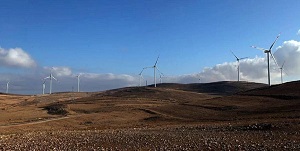2025 Public Electricity Law paves way for green energy transition in Jordan

The Jordan Times
AMMAN — The Public Electricity Law of 2025, published in the Official Gazette, came into effect on Friday, marking a “significant” step in reforming Jordan’s energy sector.
The Ministry of Energy and Mineral Resources said in a statement on Saturday that the law aims to improve efficiency in electricity use, ensure fair distribution, and enhance service quality for citizens, according to Al Mamlaka TV.
It also boosts the principles of transparency and governance while supporting the country’s shift towards a more sustainable energy future.
The ministry noted that the legislation will reduce reliance on costly energy imports by expanding local renewable production, mainly solar and wind power, which have seen rapid growth in recent years.
It also protects Jordan from fluctuations in global energy prices and geopolitical disruptions.
The law provides a framework for major domestic and foreign investments in renewable projects, including green hydrogen, a leading source of clean energy, and also introduces, for the first time, regulations for electricity storage facilities, allowing individuals and companies to own and operate storage units for self-consumption or grid support.
In line with Jordan’s Economic Modernisation Vision 2033, the law encourages innovation, adoption of new technologies, and integration with the country’s digital and green economy strategies.
Energy Minister Saleh Kharabsheh on Saturday told Al Mamlaka TV that the new legislation replaces the temporary electricity law issued in 2002, establishing a more efficient and resilient system.
He highlighted provisions that promote self-generation of electricity, whether through independent or shared facilities, enabling businesses and households to consume their own power and sell surplus energy to the national grid.
The minister stressed that linking renewable generation with storage solutions will enhance grid stability and optimise resource use.
He added that investors are now permitted to build private power networks, a practice previously prohibited, under clear technical standards and legal timelines for approvals, which is expected to attract large-scale investments, particularly in green hydrogen.
Kharabsheh also underlined incentives for citizens and companies to adopt energy storage technologies, as costs continue to fall, noting that the law empowers distribution companies to establish local substations, improve service reliability, and cut losses, ultimately reducing long-term electricity costs for consumers.
By prioritising renewable energy and domestic resources, the minister added, Jordan will enhance energy security and lower dependency on imports, ensuring a “stable and cost-effective” electricity system for years to come.




